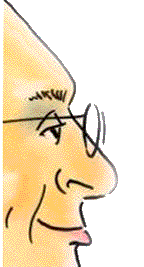
THIS IS EXACTLY WHAT HAPPENS!
PHASE
1:
You propose an experiment in which your ability to affect an audience member’s
choices will be put to the test.
She is handed a small pack of playing
cards and asked to deal them into two fairly equal piles. But not just at
random — she is to “follow her intuition” as she does so, and deal cards to
either pile as her feelings dictate.
After the cards are dealt, you state that
you handed her exactly twenty cards — ten Red and ten Black.
“Let’s see how you’ve done.”
You pick up one of the piles and count
out loud the number of cards in it, one at a time, as you deal them onto the
table.
There are precisely ten cards!
“That’s a good sign — a very promising
beginning.”
Then you simultaneously turn over the top
card of each pile, showing that there was a Red Card on top of one pile and a
Black Card on top of the other pile.
This is repeated a few more times, and
again it is seen that one of the piles contains only Red Cards, and the other
only Black Cards.
Commenting that, “I think you see where
this is going,” you “cut to the chase” by picking up the remaining cards and
turning them over en masse, showing
that all of the cards were sorted correctly by the spectator!
(It’s truly that clean and direct. If you wish, you can literally perform this in under a minute and its impact is beyond belief. Also, consider that at no time do you touch the cards during the spectator’s sorting process or give any instructions as she deals the cards. I sincerely feel this is as direct and clean as OOTW can be. But wait — there’s more.)
PHASE
2:
“O.K. — that’s pretty cool, isn’t it? You are
a remarkably intuitive person — you’re great to work with.” As this is said,
you gather and square up the cards.
“Let’s try something a little more
difficult.”
You remove another playing card from your
pocket, and it is seen to be an Ace of Spades.
“What color is this card?”
Of course, the spectator says, “Black.”
“Well, I’m going to try and influence you
to think it’s a Red Card.”
You insert the AS into the group of cards
and, depending on your presentational style, shuffle or deliberately rearrange
them.
You square up the cards, turn them face
down, and hand them to your assistant, as in the first phase, with the same
“follow your intuition” instructions you gave before.
She is then to deal the cards into two
fairly equal piles, as the first time. (BTW, if you’re “thinking method” as you
read the effect, consider that you could actually turn your back as she deals
the cards.)
After she is done dealing the cards, you ask
her, “Which pile do you think you dealt the Black Cards to?” You pick up the
pile she indicated, and smile in a way that indicates she is correct.
As you mention that you attempted to
influence her to deal just Black Cards to this pile, “like last time,” you turn
over one card, then another, then another, etc., from the top of that pile and
they are all seen to indeed be Black Cards.
“You were correct — as you can see, these
are all Black Cards.”
You then pick up the pile on the table
and place it with the remaining cards still in your hand. Continuing the same
motion, you turn the combined packet face up and place it on the Black Cards
you already dealt.
You continue, “But, as you’ll see, it’s
the Red Cards that are now the most interesting,” as you then ribbon spread all
of the cards to show a solid bank of nine Black Cards and the Ace of Spades
residing in the middle of the group of all Red Cards
“You see — you must have thought the Ace of Spades was indeed a Red Card.”
A few points to emphasize:
You hand the cards to the spectator with
the most minimal of instructions and you don’t interfere, or even have to say a
word, until she is done dealing the cards.
There is NOTHING odd, out of the
ordinary, or even anything that remotely appears unusual.
This is just what you would do, if you were doing it for real. There is absolutely no trace of artifice or guile which could make your audience suspicious in the least.